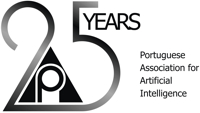SSM
Social Simulation and Modelling
Social Simulation is a recent multi-disciplinary effort that has increasingly established new challenges for the Artificial Intelligence and Multiagent Systems community, by bringing the agent technology to face complex phenomena such as the ones found in social sciences. At the same time, social scientists have been discovering how the computer and especially the advances in artificial intelligence and multi-agent systems can provide a new and exciting tool to tackle the problems of their field, providing a paradigm shift in social sciences. The exchange between researchers in both areas has proven mutually fruitful, as much inspiration in Multiagent Systems has come from Social Sciences, and these have benefited from more rigourous and operational concepts as well as from principled methodologies with which to face experiments with heterogeneous artificial agents.
Social Simulation (SS) brings together the multi-agent systems (MAS) and agent-based modelling (ABM) communities. The focus of MAS is on the solution of complex problems related to the construction, deployment and efficient operation of agent-based systems, while the focus of ABM is on simulating and synthesising social behaviours in order to understand real social systems (human, animal and even digital) via the development and testing of new theories. Both these communities are now well-established and have many common issues, but there are few opportunities for crossover of ideas between the two communities.
This track aims at presenting the most recent advances in multi-agent-based exploratory social simulation from a strong computer science and Artificial Intelligence stance. To promote a multi-disciplinary and cross-influential approach, this workshop will focus both on ideas coming from Artificial Intelligence as a new technology to provide insights into ABM community and the ideas coming from social sciences as new metaphors to provide insights into MAS community.
Topics of Interest
General Issues:
- Agent and social environment modelling
- Standards for social simulators including inter-operability
- Self-organisation, scalability, robustness in SS
- Policy applications
- SS applications
- Methodologies and techniques that link MAS and ABM works
MAS issues:
- Grid-computing for SS
- Visualisation and analytic tools
- Managing interactions in large-scale systems
- Simulation languages and formalisms
- Complexity
ABM issues:
- Formal and agent-based models of social behaviour and social order
- Social structures and norms
- Cognitive modelling and social simulation
- The emergence of co-operation and co-ordinated action
- Agent-based experimental economics
Organising Committee
- Luis Antunes, University of Lisbon, Portugal
- Marco Janssen, Arizona State University, USA
- Antonio Rocha Costa, Universidade Católica de Pelotas, Brasil
- Laszlo Gulyas, AITIA International Inc and Lorand Eotvos University, Hungary
Contact
xarax[at]di[.]fc[.]ul[.]pt
Program Committee
- Alexis Drogoul, IRD, France
- Amilcar Cardoso, DEIUC, Portugal
- Ana Bazzan, UFRGS, Brazil
- Bruce Edmonds, Centre for Policy Modelling, UK
- Carles Sierra, IIIA, Spain
- Carlos Ramos, ISEP, Portugal
- Claudio Cioffi-Revilla, George Mason University, USA
- Elizabeth Sklar, City University of New York, USA
- Fernando Neto, Univ. Pernambuco, Brazil
- Frederic Amblard, Universite Toulouse 1, France
- Guillaume Deffuant, Cemagref, France
- Harko Verhagen, Stockholm University, Sweden
- Helder Coelho, University of Lisbon, Portugal
- Jaime Sichman, University of Sao Paulo, Brazil
- Jan Treur, Vrije Universiteit in Amsterdam, The Netherlands
- João Balsa, Universidade de Lisboa, Portugal
- Jorge Louçã, ISCTE, Portugal
- Juan Pavón, Universidad Complutense Madrid Spain
- Julie Dugdale, Laboratoire d’Informatique de Grenoble, France
- Juliette Rouchier, Greqam/CNRS, France
- Keiki Takadama, Tokyo Institute of Technology
- Keith Sawyer, Washington University in St. Louis, USA
- Klaus Troitzsch, University of Koblenz, Germany
- Mario Paolucci (ISTC/CNR, Italy)
- Michel Klein, Free University Amsterdam, The Netherlands
- Nick Gotts, Macaulay Institute, Scotland, UK
- Nigel Gilbert, University of Surrey, UK
- Nuno David, ISCTE, Portugal
- Paul Davidsson, Blekinge Institute of Technology, Sweden
- Pedro Andrade, INPE, Brazil
- Pedro Campos, FEUP, Portugal
- Rainer Hegselmann, University of Bayreuth, Germany
- Robert Axtell, George Mason University, USA
- Ron Sun, Rensselaer Polytechnic Institute, USA
- Samer Hassan, Univ. Complutense Madrid, Spain
- Wander Jager, University of Groningen, Netherlands

